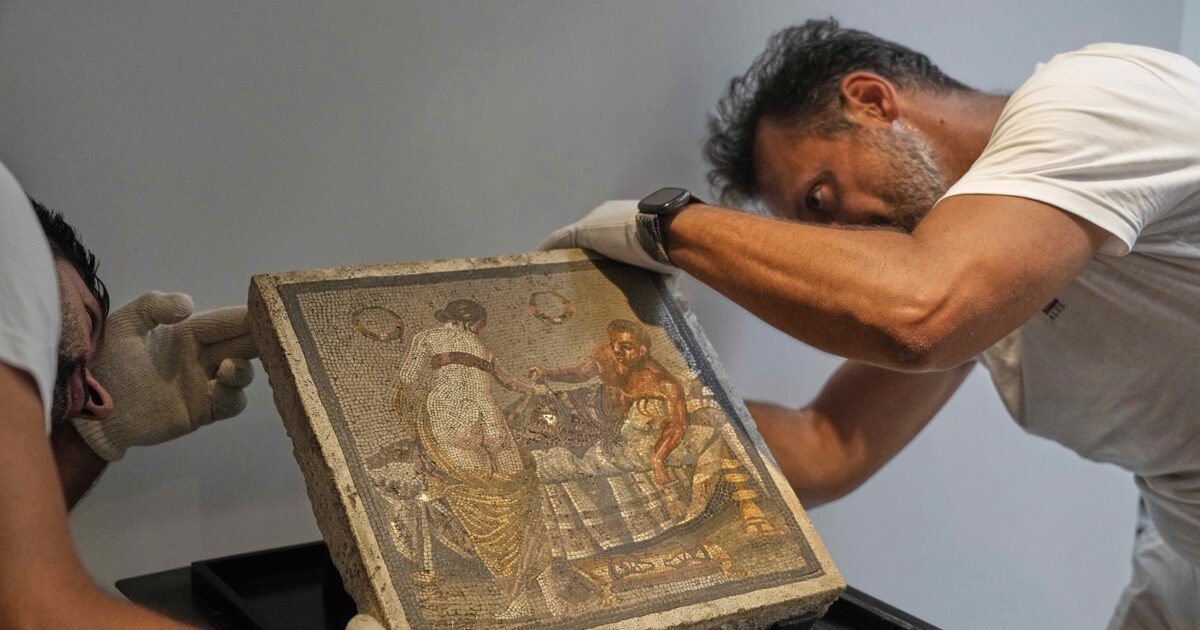Roman mosaic of erotic content returned to Pompeii After more than 80 years after the Nazi officer’s theft during World War II, the Police Cultural Heritage Protection Headquarters announced today (15.07.2025). Italy.
The mosaic – depicting a man lying on the bed, with his partner standing in front of him – was repatriated from Germany through a diplomatic route, under the organization of the Italian consulate in Stuttgart, after being returned by his heirs.
It dates between the 1st century BC. and of the 1st century AD It was removed from the area around Pompeii, near Naples during World War II, by a German officer in the military dubbody in Italy.
The owner had received the mosaic as a gift from a Vermacht captain who had taken over the army’s supply chain in Italy during the war.
“This is the moment when the subject of family love is becoming an artistic theme,” explained Gabriel Tsuhrigel, director of the Archaeological Park of Pompeii and co-author of a test for the restored work.
“While the Hellenistic period, from the 4th to the 1st century BC, elevated the passion for mythological and heroic forms, today we are discovering a new issue,” he said.
The heirs of the last owner of the mosaic in Germany contacted Rome’s Carabinieri Unit, responsible for protecting the cultural heritage and responsible for research, to gather information on how the mosaic to return to the Italian state. Authorities carried out the necessary checks to determine his authenticity and origin and then worked for his return in September 2023.
Gabriel Chuchrigel, the German director of the Pompeii Archaeological Park, said the mosaic depicts the “routine” in a couple’s erotic life, explaining that the man “seems like bored” lying in bed.
“Today’s return is like the healing of an open wound,” Chuchrigel said, adding that the mosaic helps to reconstitute the history of that period, in the first century AD, before Pompeii was destroyed by the explosion of Vesuvi in 79 AD.
The park manager also stated that the restoration of its owner’s heirs marks a significant change in the “mentality” because “the feeling of possession (a stolen work of art) becomes a heavy weight”.
“We often see this in the many letters we receive from people who may have stolen a simple stone to bring back a piece of Pompeii,” Zuchtriegel said.
He remembered the “curse of Pompeii”, which, according to the popular superstition, affects anyone who steals objects from Pompeii.
A worldwide famous legend says that those who steal objects found in the ancient city of Pompeii will suffer from misfortune or bad luck. This legend has been fueled over the years by several tourists bringing back stolen objects, claiming that they have brought them bad luck and caused tragic events.
The mosaic will soon be exposed to Pompeii along with hundreds of other objects and archaeological finds, at the site of the ancient city destroyed by the eruption of Vesuvius in 79 AD.
